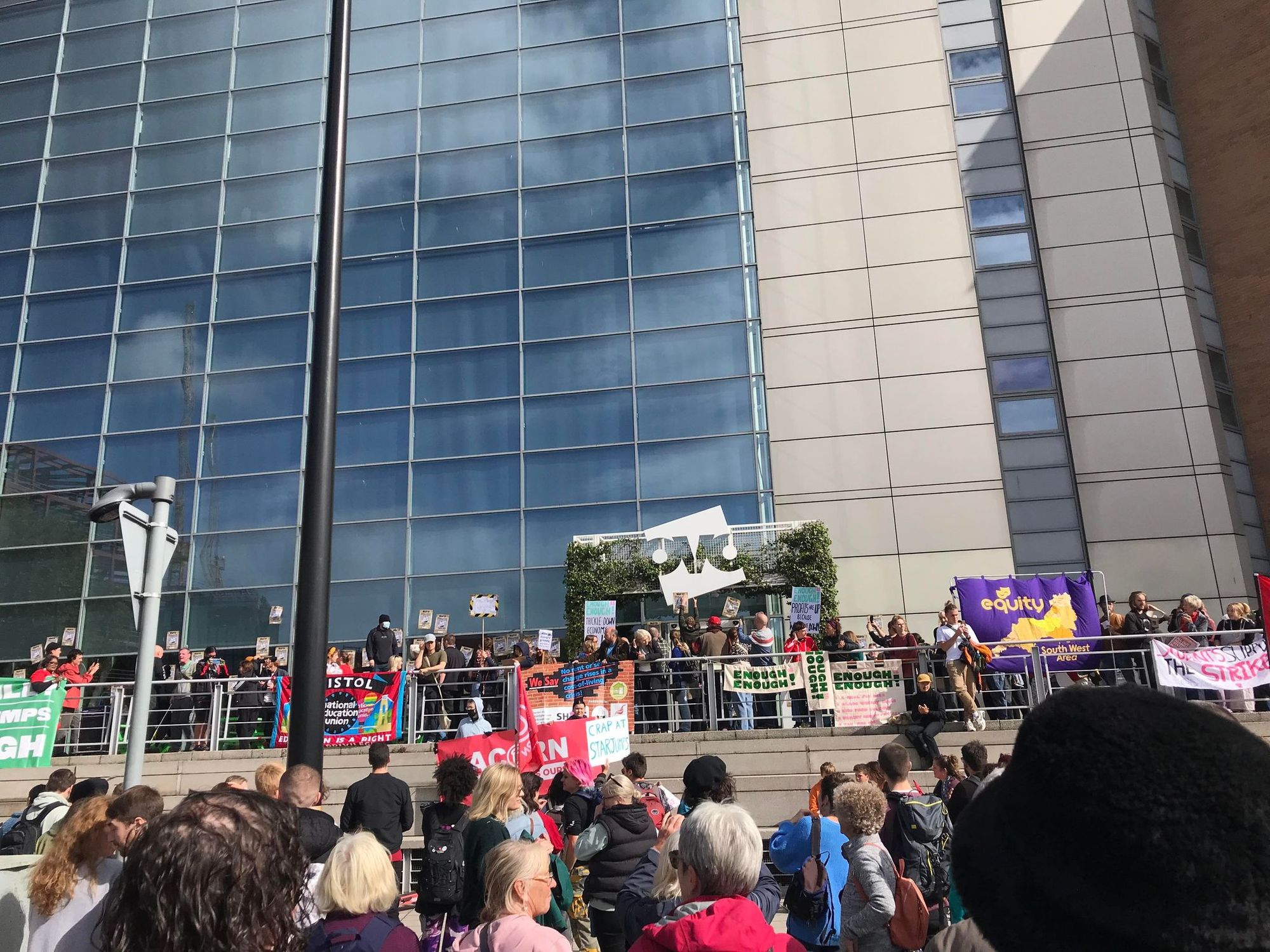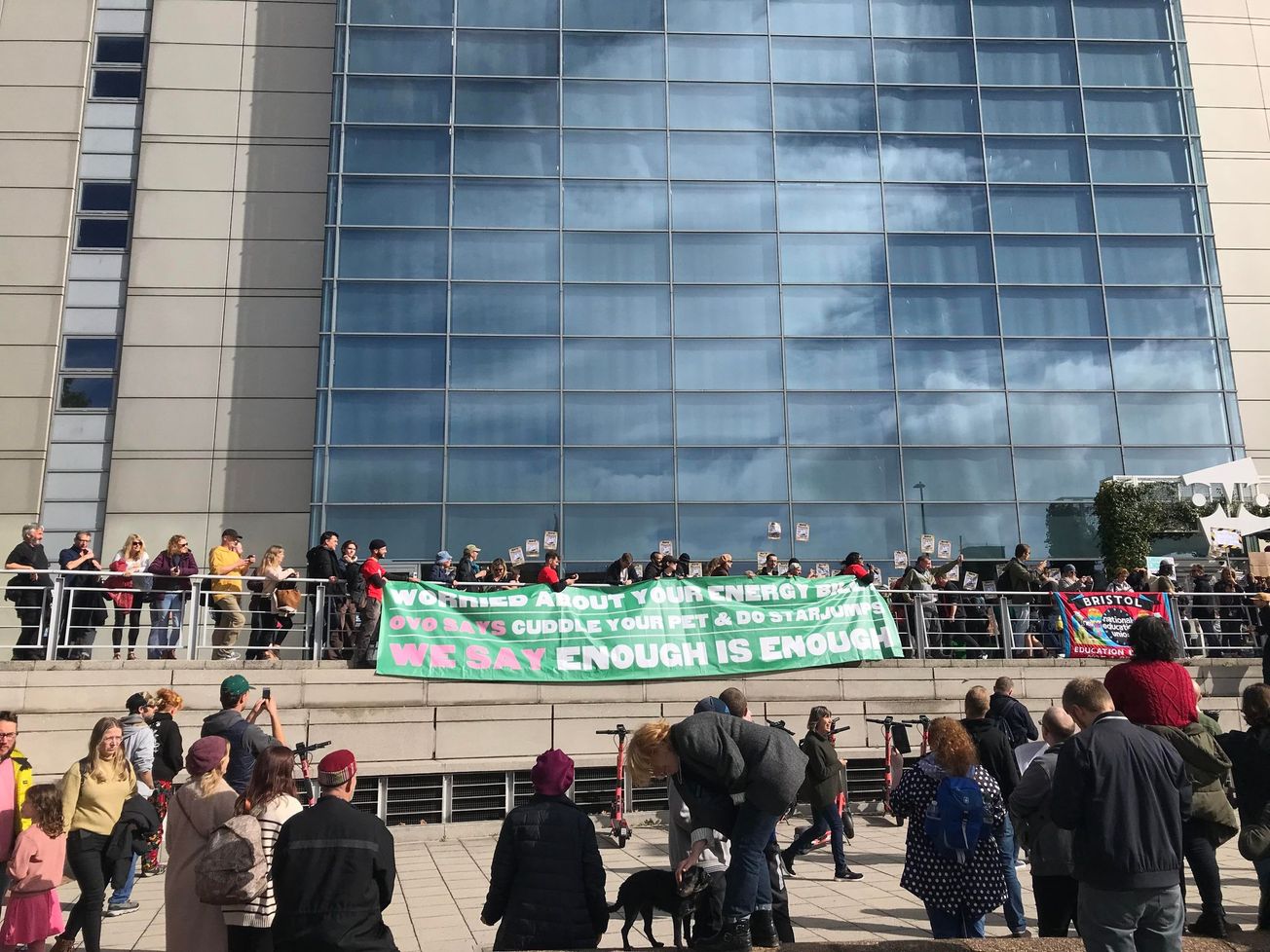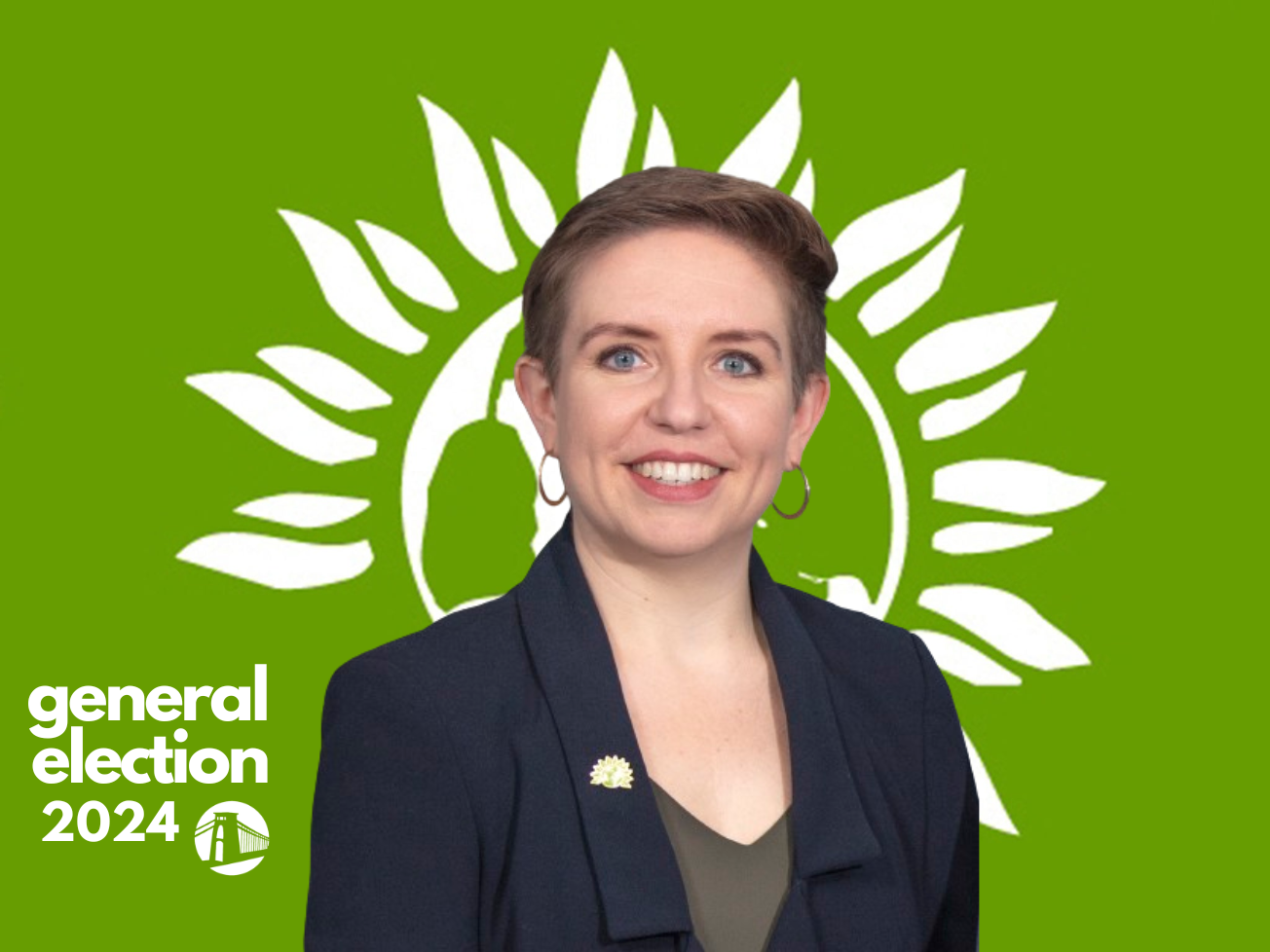By Aidan Szabo Hall, Features Investigations Editor
An estimated two-thousand people gathered at Temple Meads on the first of October to voice their opposition to the cost-of-living crisis. Occurring across 45 other locations on the day, a wave of protests - the likes of which have been unseen in the UK since the political and economic volatility of the 1970s - swept the country.
The ubiquity of the ‘Enough is Enough’ Campaign, and the speed with which it has captured, voiced, and mobilized the inflamed public mood is indicative of widespread societal unrest.
At midday, protesters gathered at the Knight’s Templar Wetherspoons and marched to the Bath Bridge Roundabout. Later returning to Temple Meads station, protesters congregated outside the OVO Energy office and then joined the RMT worker’s picket line to listen to speeches.
Amidst ominous predictions that two-thirds of all UK households could be in fuel poverty by January, OVO Energy - founded by billionaire Stephen Fitzpatrick - previously faced widespread condemnation when it advised customers worried about staying warm to ‘Do a few star jumps’ and ‘cuddle their pet.’

Sheila Caffrey – a teacher who is a member of the Bristol Trades Union Council and an elected member of the National Education Union – spoke powerfully and defiantly. She lambasted the prevalence of food poverty and the fact that the existence of food banks has become normalised in what is ‘One of the richest countries in the world.’
Caffrey starkly detailed that teachers have experienced a ‘Twenty per cent pay cut in the last decade’ despite having to work brutal hours. She also described the ‘Cuts on cuts’ that the education sector has endured. These have impacted ‘Subjects, staff and services like libraries and educational needs – the things that our children and young people need the most.’
Lamentably, ‘Support staff are some of the lowest paid workers in our society’ and ‘Have faced a 27 per cent pay cut in the last decade.’
'Doctors and nurses have taken an accumulated total of 23,000 years off for mental health problems since 2017'
The Bristol ‘Enough is Enough’ protest unfolded in concurrence with both postal CWU) and rail (RMT) strikes. This also coincided with ‘Don’t pay UK’ – a campaign urging people not to pay energy bills – and ASLEF, TSSA and Unite, who were also protesting on the same day. This scale of coordinated action reflects the magnitude of interlocking crises impacting the country and the extent to which vast swathes of Britain’s workforce feel as if they are at breaking point.
The overarching sentiment of the protest was one of dismay at a ruling ideology that appears to prioritise profit over people and exasperation at a country seemingly trapped in a continuous state of regression.
Speaking to Epigram, one attendee - who works in the NHS – outlined the precarity of her situation: ‘I’m exhausted and burnt out. I can’t physically or mentally continue in this job anymore. I work far too hard to be this poor.’
Touching on the chronic underfunding of the healthcare institution – perhaps the defining emblem of a broken Britain - she said: ‘We’re constantly understaffed and overworked. Because of Brexit, we’re having to bring in workers from other countries to help fill our shortages. I’m scared that this will deter the next generation of nurses and doctors.’
Her individual experience is reflective of a broader trend: a mere 27 per cent of people working in the NHS feel that there are enough staff in their organisation to allow them to do their jobs properly. Swamped with treatment backlogs and crippled by the pandemic, it is no surprise that doctors and nurses have taken an accumulated total of 23,000 years off for mental health problems since 2017.
Another attendee noted the bleak paradox of the cost-of-living crisis: ‘I have friends who benefit from these tax giveaways that they don’t even want. Meanwhile the rest of us are experiencing ridiculous increases in the cost of living and unprecedented assaults on pay. The rich are getting richer, the poor are getting poorer and the people in the middle are being left behind’.
The cost-of-living is threatening pub culture: How much would you pay for a pint?
The working class are back: the 'Enough is Enough' campaign launches in Bristol
Given the context, with millions of people being forced to skip meals, it is striking that this campaign’s demands, calling for an end to food poverty and real-terms pay rises, are having to be fought for with such vigorous collective action. In a democratic nation in 2022, such injustice should be irrefutably recognised.
This comes as the UK looks poised to re-wind to the squeezing austerity measures of 2010 – the public spending cuts, or ‘tough decisions’ that have since reportedly contributed to the excess deaths of over 330,000 people. The Enough is Enough campaign looks set to garner more support as millions brace themselves for a dark winter.
Featured Image: Epigram / Aidan Szabo-Hall
How is the cost of living crisis affecting you?








